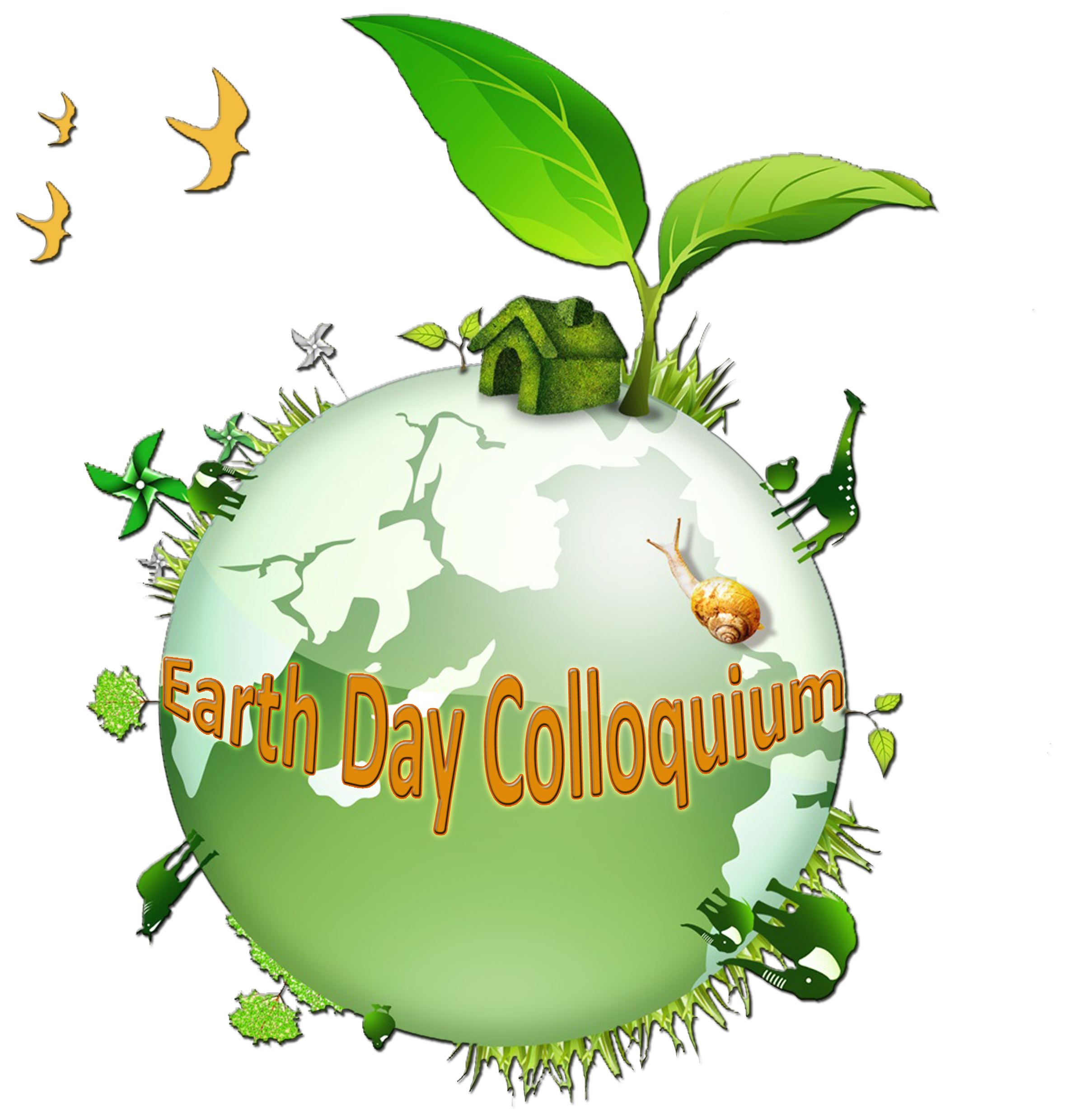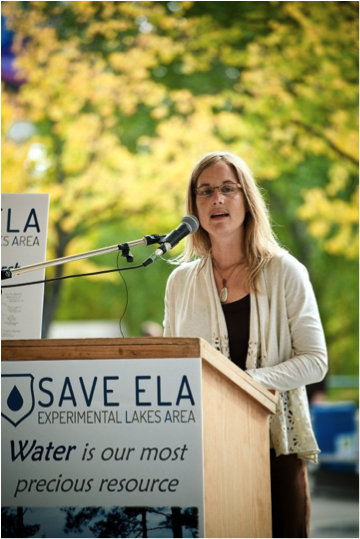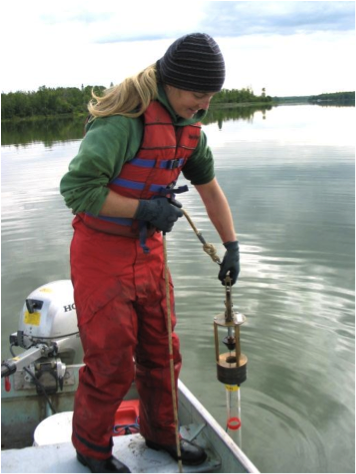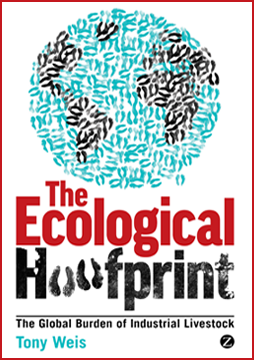 |
Earth Day Colloquium 2014 |
Keynote Speaker
Environmental Advocacy in a Political Tempest: Campaign to Save the Experimental Lakes Area
|
| In the last few years, we have experienced a dizzying number of assaults on science and the environment in Canada. From dismantling of vital public science programs and gutting of environmental legislation to the muzzling of federal scientists, the current Canadian government has systematically crippled our national capacity to collect information, convey evidence, and influence public policy on environmental issues. These actions will undoubtedly compromise the health of our natural ecosystems for years to come. In my presentation, I will share a story about saving the Experimental Lakes Area - a preeminent freshwater research centre shut down by the Canadian government - with you, in hopes that it may hold some valuable lessons about advocating for the environment during a rather environmentally unfriendly Canada's history. |
| Dr. Diane Orihel is a tenacious young freshwater ecologist who investigates human impact on aquatic ecosystems through large-scale, multidisciplinary field experiments. She has conducted research on nutrient cycling and algal blooms in eutrophic lakes, mercury contamination of aquatic food webs, as well as the environmental fate of flame retardants. She has come to be known as the 'Lady of the Lakes' after she set aside her Ph.D. to lead the fight to save the Experimental Lakes Area. Her advocacy has helped inspire scientists across the county to voice concerns over the federal government's attack on science and the environment. Diane has published in leading scientific journals, received numerous national scholarships awards, including most recently receiving a national prize for science promotion, as well as has been featured in Science and Nature magazines, and appeared on The National and Power & Politics television programs. |
|
Invited Speakers
Ontario Ministry of Transportation and the Rt. Hon. Herb Gray Parkway: Supporting Community and Ecological Sustainability
The Rt. Hon. Herb Gray Parkway (the Parkway) is the freeway portion of a new end-to-end border transportation system between Windsor, Ontario and Detroit, Michigan. Identified through one of the most extensive environmental assessments ever undertaken by Ontario, the Parkway was approved under both the Ontario Environmental Assessment Act and the Canadian Environmental Assessment Act. It will be 11 kilometres includes 11 tunnels, more than 300 acres of green space, 20 kilometres of recreational trails and new community connections. The Parkway's green space will feature a native Carolinian landscape, targeting in particular the globally threatened Tallgrass Prairie and Oak Savannah landscapes that are characteristic of Windsor-Essex. This presentation will showcase the various environmental activities undertaken for the Parkway-highlighting innovations, adaptive management, collaborations and the incorporation of Traditional Knowledge through a valuable partnership with Walpole Island First Nation.Barbara Macdonell is a Senior Environmental Planner with the Ontario Ministry of Transportation's Windsor Border Initiatives Implementation Group (BIIG) and has been with the Ministry since 2005. Barb is also a Registered Professional Planner and has been a member of the board of Tallgrass Ontario since 2011.
Melissa Raffoul is an Environmental Planner with the Ontario Ministry of Transportation's Windsor Border Initiatives Implementation Group (BIIG) and has been with the Ministry since 2013. Prior to this she graduated with a Master of Science in Biology from Western University.
Permaculture and Sustainable Living
Permaculture is a holistic approach to designing our balconies, backyards, farms, villages and urban spaces. It works with nature's rhythms and patterns, weaving together the elements of microclimate, annual and perennial plants, animals, water and soil management, and human needs into intricately connected and productive communities. Permaculture designs provide food, energy, and shelter for people and animal inhabitants while linking the needs and outputs of each element. The result is a dynamic yet stable system that sustains itself. This presentation will attempt to demonstrate how an intentional community in Ontario has applied permaculture principles and techniques to design an evolving sustainable farm community.
|
| Brenda Dolling was born and raised on Spruce Lane Farm in Oakville Ontario, which is now part of Bronte Creek Provincial Park. After a BA in psychology and sociology and a M.Ed in education she completed a 32 year career in elementary education, which included a volunteer project as a teacher trainer in South Africa. She is an advocate for social and environmental justice and a community activist on issues of poverty, human rights and the environment. Since 2001, she has been co-creating the intentional community/ecovillage (co-operative) in Caledon devoted to sustainable living where she also conducts workshops on Permaculture. |
The Ecological Hoofprint: The Global Burden of Industrial Livestock Production
|
| The ecological hoofprint is a conceptual framework for understanding the momentous impacts of the growth and industrialization of livestock production, which commands a large share of the world's arable land through its heavy pull on grain and oilseed supplies, and is entwined with the 'meatification' of diets on a world scale. A central aspect of the analysis focuses on the nature of production in the industrial grain-oilseed-livestock complex, and how political economic imperatives drive processes of radical biological simplification and standardization that have created 'oceans' of monocultures dotted with 'islands' of densely packed animals.Ultimately, I argue, the industrialization of livestock is not only deeply unsustainable but constitutes a powerful vector of global inequality and a major aspect of the silent violence of everyday life. The ecological hoofprint attempts to make it clear why confronting the industrial grain-oilseed-livestock complex and the meatification of diets are vital to hopes of building more sustainable, just, and humane agricultural systems. |
| Dr. Tony Weis is originally from Waterloo and is an Associate Professor of Geography at Western University, where he has worked since 2004. He obtained his PhD from Queen’s University. His research and teaching are broadly located in the field of political ecology; his research focuses on agriculture and his teaching revolves around subjects of environmental change, conservation, development, and inequality. He has written two books: The Global Food Economy: The Battle for the Future of Farming (2007) and most recently The Ecological Hoofprint: The Global Burden of Industrial Livestock (2013) |
|
|
|
Updated Apr 2014 © EDC 2014 Committee |




